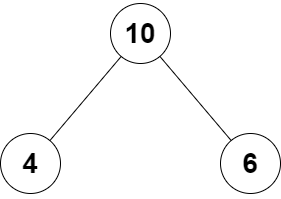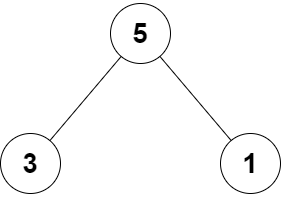Problem
You are given the root of a binary tree that consists of exactly 3 nodes: the root, its left child, and its right child.
Return true **if the value of the root is equal to the *sum* of the values of its two children, or false otherwise**.
Example 1:

Input: root = [10,4,6]
Output: true
Explanation: The values of the root, its left child, and its right child are 10, 4, and 6, respectively.
10 is equal to 4 + 6, so we return true.
Example 2:

Input: root = [5,3,1]
Output: false
Explanation: The values of the root, its left child, and its right child are 5, 3, and 1, respectively.
5 is not equal to 3 + 1, so we return false.
Constraints:
The tree consists only of the root, its left child, and its right child.
-100 <= Node.val <= 100
Solution (Java)
/**
* Definition for a binary tree node.
* public class TreeNode {
* int val;
* TreeNode left;
* TreeNode right;
* TreeNode() {}
* TreeNode(int val) { this.val = val; }
* TreeNode(int val, TreeNode left, TreeNode right) {
* this.val = val;
* this.left = left;
* this.right = right;
* }
* }
*/
class Solution {
public boolean checkTree(TreeNode root) {
return root.left.val + root.right.val == root.val;
}
}
Explain:
nope.
Complexity:
- Time complexity : O(n).
- Space complexity : O(n).